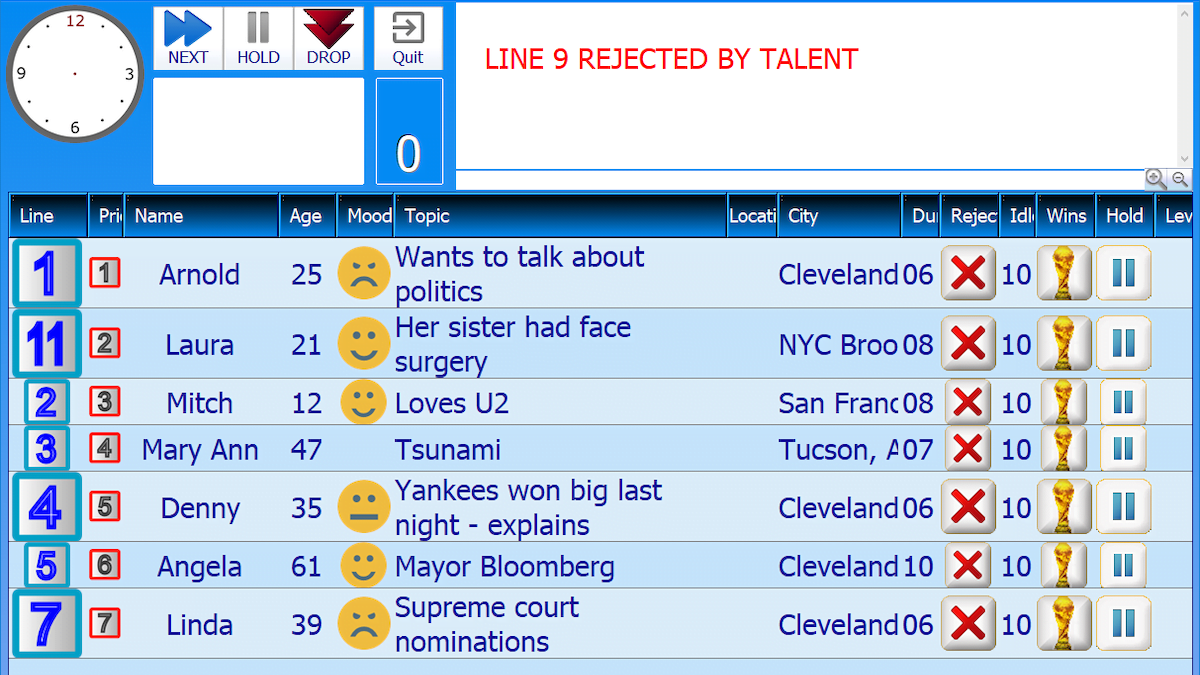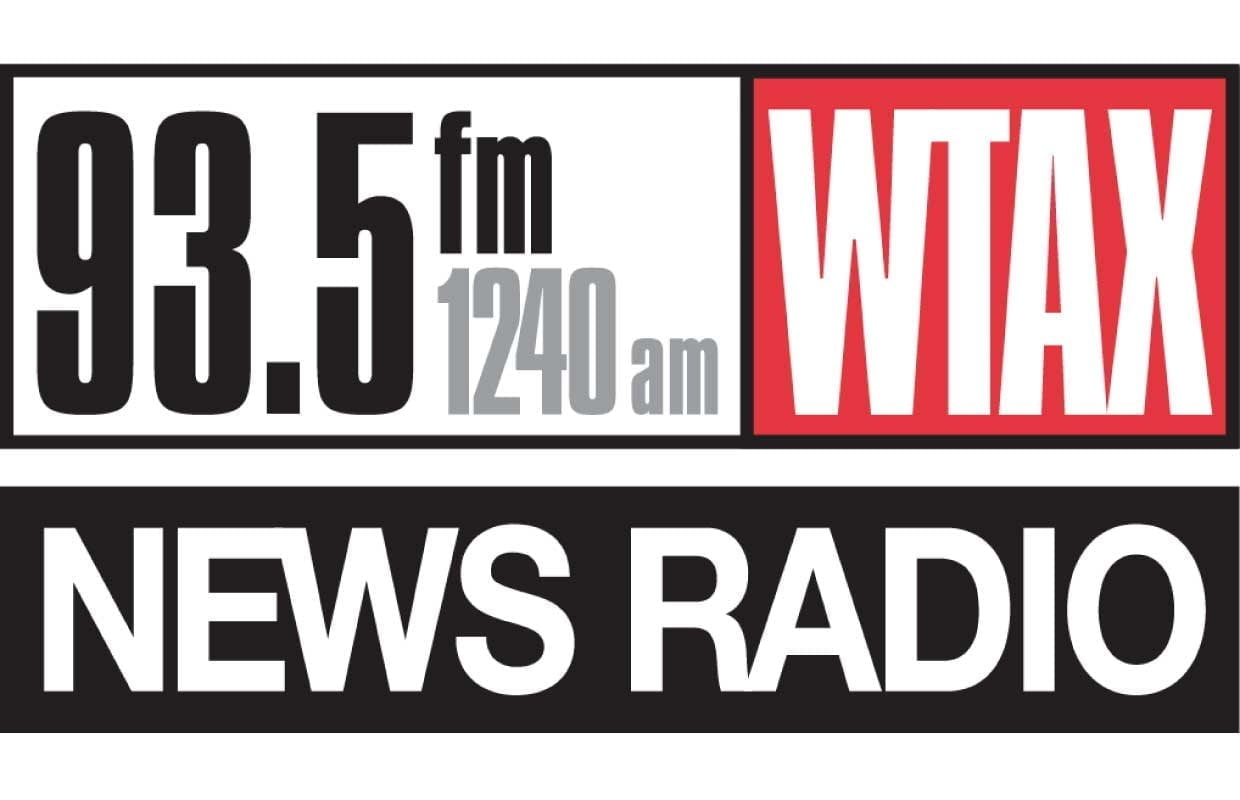Two years ago, we did a poll on the site. We asked listeners what they value least when listening to sports radio in the morning. They had four options, which included guests, updates, and basic information like news, traffic, and weather. None of them came close to the top spot.
Overwhelmingly, listeners told us they hate hearing another listener on the air. In a poll with four options, more than 50-percent of the people that responded said callers have the least value to the sports radio audience in morning drive.

Does that mean no one should ever take a phone call? If I am being honest with you, that is my mind set. I have written several times that the only person that cares about what Chet in Dunwoody thinks the Falcons should get back for trading Julio Jones is Chet in Dunwoody.
Not all shows are built the same though. And the issue of how best to use phone calls has changed. Now, we all have to figure out the best way to use fan interaction. For some that will mean phone calls. For others that will mean texts. If this were still 2002, we might be talking about faxes or IMs.
Is less more? Will listener interaction spur more listener interaction? There are so many competing philosophies that I decided it was best to ask hosts and producers what they think.
In the national sports radio landscape, if I say phone calls, you are thinking about one name: Paul Finebaum. I want to hear less calls. He can’t imagine the Paul Finebaum Show without them.
“The callers are the most important element of the show. They are the show,” Paul told me in an email. “There are countless very sports show across the dial and available on many platforms. There are far more knowledge and talented hosts. But I don’t think there is another program in the country that matches ours for the authenticity and passion of the callers.”

Look, I can’t argue with that. I grew up in Alabama listening to Paul. Some of my memories of sports news unfolding in front of my ears involved his old show. I am talking the pre-JOX days. I go back to the WERC days of Paul reading the Sports Illustrated story of Mike Price’s visit to a Pensacola strip club live on air in absolute shock.
You may jump to the extreme when you think Finebaum callers. Hell, if you aren’t from Alabama and don’t know any of them by name, you probably know Harvey Updyke. But that show is not that show without I-Man and Legend and Tammy and Phyllis and the Jims (both the Tuscaloosa and Crestwood versions). Those are the callers Finebaum is adamant he could not do his show without, the ones that are every bit as important a part of his work family as his wife Linda is to his actual family.
“I’ve the given the eulogy at several funerals of our callers and the thing that has struck me is how the other callers have always shown up, people they only knew as a voice on the radio, but who felt like they were a part of their own family,” he said.
When you think about sports radio in the Northeast, it is hard not to think of phone calls. Cabbies loudly yelling into a brick of a cellphone about why a manager should be fired for the way he handled a pitching change is the stereotype sports radio was built on.
Tyrone Johnson, who produces and co-hosts Mike Missanelli’s afternoon show on 97.5 the Fanatic in Philadelphia, doesn’t like that the entire region is lumped together, but does admit the city’s loud-mouthed fanbase is an asset.
“What works in Boston or New York doesn’t automatically work in Philadelphia and vice versa,” he says. “There are no hard rules, but Philadelphia fans expect interaction in my opinion more than some others.”

Johnson knows that the trend in sports radio is moving away from phone calls. It isn’t something he quite gets though. He struggles to see how eliminating listener opinion makes shows better.
“I think people overthink it by eliminating them completely based on a bit of self importance. While the hosts’ opinion is most important, stating things with no feedback or no pushback to me isn’t great radio either.”
So Johnson, and the rest of the behind the scenes staff on Missanelli’s show make sure the calls they take work for what is happening. He told me that as far as he is concerned, there are two rules for making the air if a listener picks up the phone during afternoon drive.
“#1 the call has to be about the topic. There are shows that sort of do open phones and that makes no sense. #2 calls are wanted but not needed, no individual caller is important enough to derail what is going on. There is a screener and then I have to view the person after that, so it is basically double screened. As far as when to hang up, normally shorter is better within reason. The biggest mistake people make is letting calls go on too long.”
Geoff Calkins doesn’t take callers often. His show on Memphis’s 92.9 ESPN is thought out and strategic. He knows where he wants to go. He has to know that the time is right before he asks for phone calls, but when he does, he is rarely disappointed. It is something he attributes to the makeup of his city.
He told me that on Tuesday’s show, he had a specific question about the Grizzlies’ playoff performance. That lead to a call from a truck driver working for Baskin Robbins and suddenly, his show was all about ice cream.
“Maybe the best calls come when I ask about the really hard issues, involving race or politics. Or the calls we took during the early days of the pandemic,” Calkins says. “I think most people know which way I lean on these things (I’m a lefty) but the show is respectful enough that people call in with all sorts of perspectives. It struck me that there aren’t a lot of places where that happens these days. Too often, Americans only want to hear from people who mirror their own views. I feel lucky that we’ve been able to do something different. I hope it helps the broader dialogue.”
Should listeners read anything into Calkins not taking a lot of phone calls? Does it say anything at all about how he feels about their opinion? After all, the guy estimates that he takes phone calls “about once a week. And often it’s just for a segment.”
Remember, this is someone that likes asking his audience to think. He wants to hear what they have to say in response to big issues and hard questions. Those don’t come up everyday. When they do though, he makes more time to let the public speak. He used last summer’s protests as an example of when he thought it was right to let listeners steer the ship.
Other times, Geoff Calkins finds other ways to get listener opinions on the air. But that is the key. They have to have opinions and those opinions have to matter. He doesn’t want to ask people to share a thought as a way to kill time.
“We’ll do Twitter polls occasionally, and read the answers as they come in. But we’ll do that, too, strategically. Never just have a poll to have a poll,” he says.
No one I spoke with was afraid to give the listener a voice. No one wanted to hear as much of those voices as Finebaum does though.
“I will always fall on the side of going too long as opposed to being short,” he said. “You never know what the next thing that will come out of a person’s mouth will be. They may have a great sports take or reveal something about their life that affects or influences the entire show. For many, it may be their only time ever on a radio show. It may be one of the most important moments in their life. Not that many calls end up in the Smithsonian. But my attitude as a host is to be insanely curious about every caller, without fear or favor.”

So maybe listener interaction isn’t useless. Your fans are turning to your show to be entertained. If you do that by turning over the airwaves to other entertaining people, so be it. You’re still accomplishing the end goal and who am I to say boo to that?
I think the key is that everything you do on air has to put you in the best position to best serve your listeners. When you shine, they are more likely to connect to the show. How you use other voices and opinions should almost always be about how each one helps you accomplish your goal from segment to segment and show to show.

Demetri Ravanos is a columnist and features writer for Barrett Media. He is also the creator of The Sports Podcast Festival, and a previous host on the Chewing Clock and Media Noise podcasts. He occasionally fills in on stations across the Carolinas in addition to hosting Panthers and College Football podcasts. His radio resume includes stops at WAVH and WZEW in Mobile, AL, WBPT in Birmingham, AL and WBBB, WPTK and WDNC in Raleigh, NC.
You can find him on Twitter @DemetriRavanos or reach him by email at DemetriTheGreek@gmail.com.








